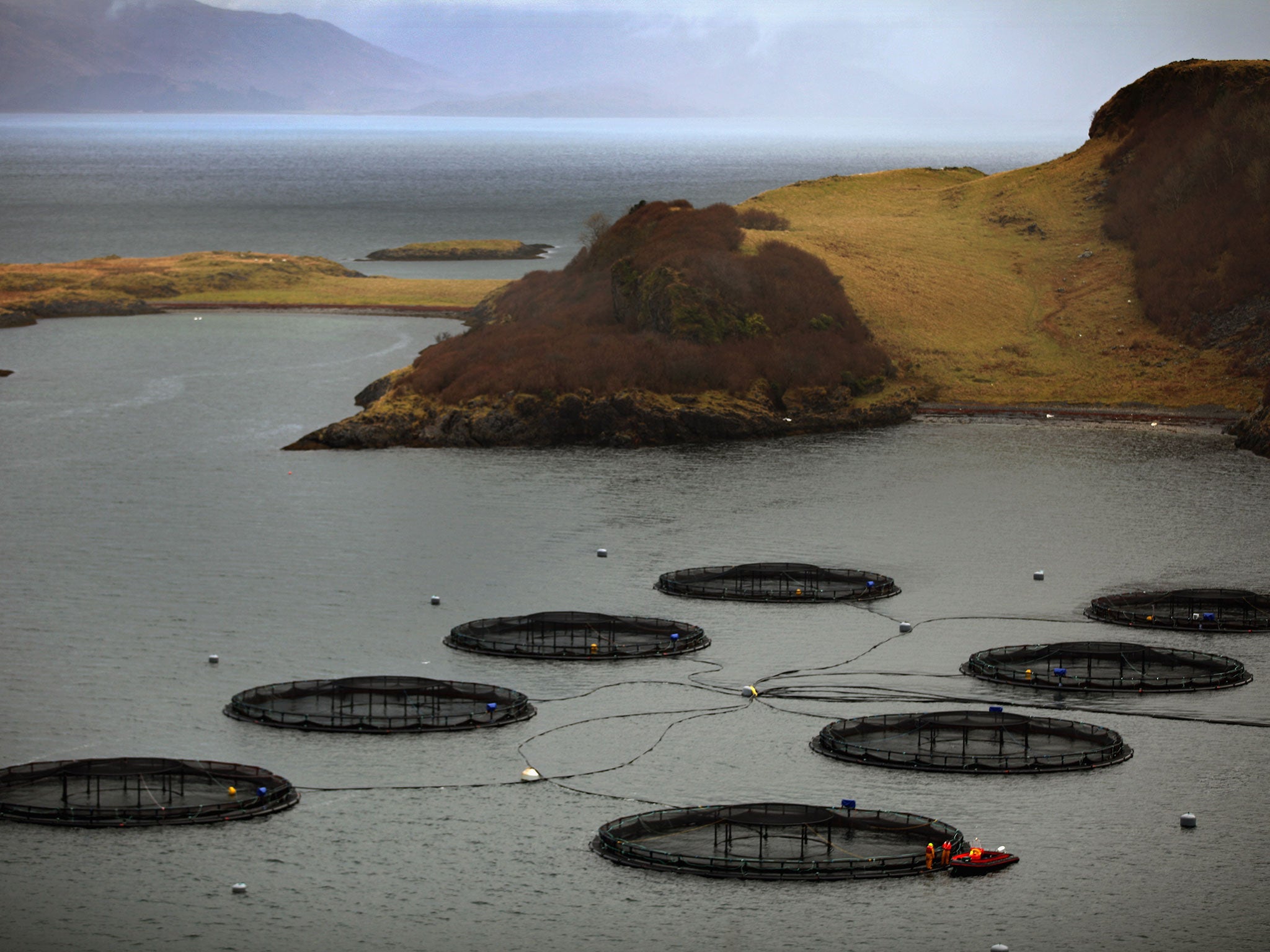Salmon farming: Calls for boycott of Scottish producers 'dripping with the blood of seals'
More than half of Scottish farms killed a seal in the past two years

Your support helps us to tell the story
From reproductive rights to climate change to Big Tech, The Independent is on the ground when the story is developing. Whether it's investigating the financials of Elon Musk's pro-Trump PAC or producing our latest documentary, 'The A Word', which shines a light on the American women fighting for reproductive rights, we know how important it is to parse out the facts from the messaging.
At such a critical moment in US history, we need reporters on the ground. Your donation allows us to keep sending journalists to speak to both sides of the story.
The Independent is trusted by Americans across the entire political spectrum. And unlike many other quality news outlets, we choose not to lock Americans out of our reporting and analysis with paywalls. We believe quality journalism should be available to everyone, paid for by those who can afford it.
Your support makes all the difference.At least one seal has been shot dead on more than half of Scotland’s salmon farms in the past two years as part of efforts to protect the fish farming industry, which is worth £500m a year in exports, according to new official figures.
The statistics, which were released following a four-year legal battle between conservationists and the authorities, prompted campaigners to call for a boycott of producers responsible for the culling of a total of 180 seals between 2013 and 2014.
Salmon farmers who had opposed the publication of the information, on the grounds that “naming and shaming” individual farms could lead to reprisals, insist that seals are only shot as a last resort and the total number killed has halved since 2011.
Although seals are a protected species, a number of licences legally to cull animals are issued each year, allowing producers to kill individual seals when all other measures, such as acoustic deterrents and netting have failed.
Campaigners who say installing preventative equipment at all salmon farms would eliminate the need to cull altogether are now writing to major supermarkets, as well as the US Department of Commerce, seeking an end to the sale of salmon produced at farms where seals are shot. The American market accounts for nearly half of Scottish salmon sales.
Don Staniford, director of the Global Alliance Against Industrial Aquaculture, which won a ruling under the Freedom of Information Act for data relating to culling at specific farms to be released, said: “Scottish salmon is dripping with the blood of dozens of seals.”
He added: “The process of naming and shaming has forced the industry to reduce the killing of seals.”
The majority of the seals – 119 out of 180 – were shot at farms owned by three producers: the Norwegian-owned companies Scottish Sea Farms and Hjaltland Sea Farms, and the Scottish Salmon Company. Across the industry, a total of 74 out of some 145 active farms had registered records showing they had shot at least one seal.
Shetland had the highest number of seal shootings, accounting for nearly half of the total. The farm with the single highest cull was Lax Firth on Shetland, operated by Hjaltland, with 24 seals killed over the two years.
Hjaltland said it had lost salmon worth £3m due to seal attacks during the period, but the company acknowledged the effectiveness of deterrent measures and said it expected to have them installed at all its farms by next year. “Where we installed predator nets or the new net types,” said a spokesman, “seal attacks and seal losses stopped.”
The Scottish Salmon Company said it only culled “rogue” seals as a last resort. Scottish Sea Farms could not be reached to comment.
Several supermarkets and the RSPCA have been criticised for selling or endorsing salmon from producers who cull seals. The RSPCA, whose Freedom Food labelling is used by several producers, said that seal attacks on fish were a “sad reality” and sometimes culling was the only choice.
Join our commenting forum
Join thought-provoking conversations, follow other Independent readers and see their replies
Comments